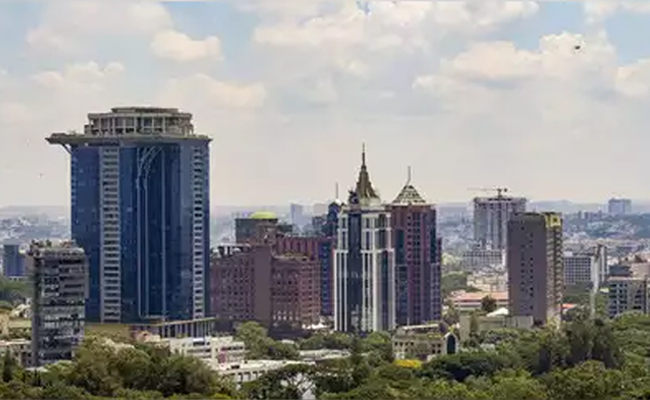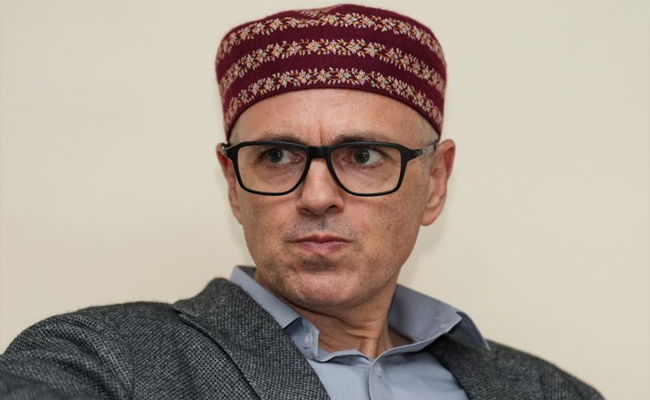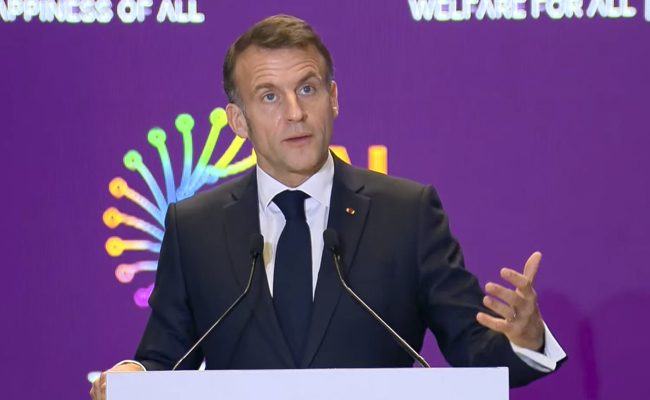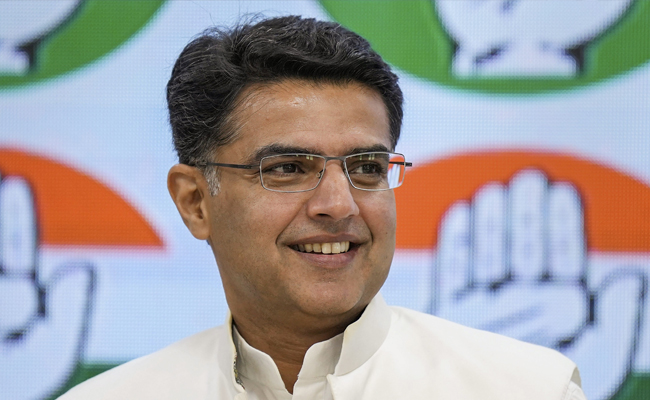Bengaluru: Karnataka is drafting a new Affordable Housing Policy that may require private real estate developers to allocate a portion of their projects for economically weaker sections (EWS). This initiative is part of preliminary discussions aimed at addressing the state’s housing challenges.
The policy is being developed by the Indian Institute of Human Settlements (IIHS), an urban-focused research organization co-founded by Nandan Nilekani and Deepak Parekh. IIHS was chosen for this task without a tender process.
Housing Minister B.Z. Zameer Ahmed Khan's office has confirmed that discussions are underway to include a clause mandating private developers to reserve inventory for EWS buyers. At present, residential layouts are only required to allocate spaces for civic amenities such as parks and playgrounds.
The policy is a key component of Chief Minister Siddaramaiah's agenda for affordable housing. It aims to streamline procedures in the housing sector while ensuring inter-departmental coordination. It will replace the 2016 housing policy and is expected to help Karnataka secure additional funding from union government housing schemes.
Funding challenges have hindered the state's housing programs, such as the Chief Minister’s One Lakh Housing Scheme, where the per-unit cost of ₹11.2 lakh places a significant financial burden on beneficiaries. With banks reluctant to lend, the government faces an estimated ₹3,700 crore shortfall.
The state is evaluating two affordable housing models proposed by the Boston Consulting Group (BCG). The first model, the Land Sharing Model, involves the government providing land to private developers, who would dedicate 30-50% of the land to affordable housing. Once the housing units are completed, they would be handed over to the government for distribution, while the developers would monetize the remaining land.
The second model, the Interest Subsidy Model, suggests offering a 3-5% subsidy on home loan interest, which would reduce monthly installments for beneficiaries from ₹8,700 to ₹5,500-6,800. This approach is expected to cost the government ₹60-170 crore annually.
Let the Truth be known. If you read VB and like VB, please be a VB Supporter and Help us deliver the Truth to one and all.
Jammu (PTI): Highlighting the efforts to revive tourism following the Pahalgam terror attack in April 2025, Jammu and Kashmir Chief Minister Omar Abdullah announced on Thursday that all currently closed tourist destinations are expected to reopen by May.
He also revealed that the government is working on plans to introduce nine new tourist destinations to further strengthen and diversify the tourism industry in the Union Territory.
Winding up the discussion on Demands for Grants in the legislative Assembly here, Abdullah said his government worked "step by step" to revive tourism in the aftermath of the April 22, 2025, Pahalgam terror attack, at a time when many in the industry believed visitors would not return to the Union Territory for years.
He said the administration engaged extensively with tourism stakeholders, rebuilt confidence through sustained outreach, and gradually restored activity despite several destinations remaining closed and restrictions in place at key locations.
The chief minister mentioned that improving tourist infrastructure is a key priority, as visitors often point out that while Pahalgam, Gulmarg, and Sonamarg are exceptionally beautiful, they lack adequate basic facilities such as toilets and other conveniences. "The government is committed to addressing these gaps," Abdullah said.
The chief minister emphasised that attracting first-time visitors to J-K is not difficult, but true success lies in ensuring they return. "Repeat tourism is the real benchmark of a strong and sustainable tourism industry, and that is where the government is now placing its focus."
Highlighting the turnaround, Abdullah noted that hotels in famous winter destinations like Gulmarg and Sonamarg are now operating at full capacity, while Srinagar is witnessing significant tourist footfall, asserting that these indicators reflect the steady revival of the sector.
"Tourism is a very important sector for Jammu and Kashmir. The reality is that when we were discussing the budget and grants last year, we had no idea that we would face such difficult circumstances (the Pahalgam attack that left 26 persons, mostly tourists, dead).
"We revived tourism at a time when we were forced to tell people that 'you can come to Kashmir, but you cannot visit Doodhpathri or Yousmarg'. We even had to tell tourists that 'you may go up by the gondola (cable-car), but you cannot move beyond the roadside eateries on the right side'. Despite all this, we gradually brought tourism back to life," the chief minister said.
He stated that while the Centre has ordered the reopening of many tourist destinations, some sites remain closed.
"There are certain things I cannot state openly, but I can assure you that discussions have taken place with the Central government. They also have certain constraints. However, you can assume that by May, all these destinations will reopen," the chief minister said.
Simultaneously, he mentioned that his government is exploring the potential of new destinations. "I had mentioned in this House last year that under multilateral funding, we wanted to open nine new destinations in J-K. The reality is that we had almost reached the stage of signing the multilateral funding agreement, but an obstacle arose which we could not overcome.
"Now, in consultation with the Centre, under a Centrally funded scheme, we will open nine new destinations. Their names will be released gradually. I assure you that people of Jammu will have no reason for complaint -- Jammu will get its fair share," he said.
In Jammu, he noted that some projects are nearing completion, including Jammu Lake and the Jammu Riverfront.
"Even the Riverfront project has certain limits -- it has not been extended to its full length. After discussing with the department, we intend to extend the Riverfront to its complete end under SASCI or some other scheme, so that just as Ahmedabad developed the Sabarmati Riverfront beautifully, we too can enhance the pride and beauty of Jammu and take it forward," Abdullah said.
He asserted that the government cannot bring every beautiful area onto the tourism map. "No matter how much promotion we do, tourists ultimately go where they choose. I cannot force a tourist to visit a particular place."
However, he said the government is making full efforts to develop at least one small or large tourist destination in every area -- promote it, market it, build infrastructure there, and attract tourists.
"How successful it will be depends on many factors, but from our side, we will make every effort to ensure that the tourism network expands into remote areas, especially in Jammu, where we have a ready market, as more than one crore pilgrims visit the Mata Vaishno Devi shrine. If we can divert even 10 per cent of them, that is 10 lakh tourists, it can transform the entire economy of Jammu," he said.
He said the effort of his government is to retain these visitors here for at least six or seven days -- through border tourism, pilgrimage tourism, golf tourism, or by taking them to places like Bhaderwah and other regions.
Kashmir is not a summer-specific tourist destination, the chief minister said, adding that the tourism season in the valley has expanded over the years.
"If you look at the winter season, places like Pahalgam, Gulmarg, and Sonamarg now witness fairly good tourist activity. In Srinagar and its surrounding areas, the Tulip Garden preponed the tourism arrivals," he said.
However, Abdullah said it was true that in October and November, the tourist footfall used to be lower. "To address that, we developed a new garden, Bagh-e-Gul-e-Dawood (Chrysanthemum Garden), which proved to be very successful. Our effort will be to further develop it this year."





